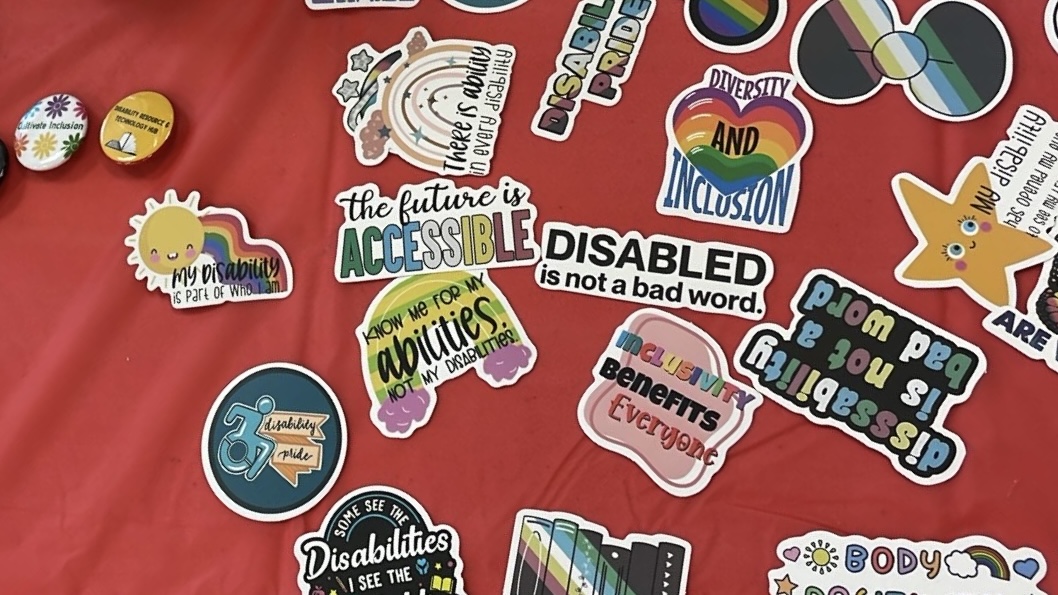Anti-Ableist Resources Coming to English Classrooms
December 02, 2024

The Disability Resource and Technology Hub provides support to faculty and students.
By Chloe Kim
When English instructors Daune O’Brien, Kisa Lape and Sarah Dammeyer set out to make their classrooms more accessible, they quickly saw a gap: traditional accommodations often didn’t fit the unique needs of students in language, writing and rhetoric classes. So, they created a new approach tailored to their field.
In collaboration with College of Education disability studies minor co-founder and former director Carolyn Fink, the team launched the Disability Resource and Technology Hub in UMD’s Department of English last month. This new center provides tools and support specifically for writing-intensive courses. Faculty can access one-on-one curriculum consultations to help them integrate accessible course design into assignments and materials. For students who struggle with focus, the Hub offers resources like “body doubling,” a strategy where students work alongside a peer or mentor to maintain concentration and accountability, and “process planning,” or breaking down tasks into steps that guide students from brainstorming to a finished product.
Resources are available to students with sensory, psychiatric, cognitive, intellectual, developmental and physical disabilities, and those seeking mental health care and support. Students do not need official documentation or disability disclosure.
“Our goal is to help English students have accessible writing experiences, and we want to be a resource for faculty looking for more ways to provide such accessibility,” said Lape. “We hope that students with disabilities will see the hub as a place where they can find a writing mentor or coach.”
Funded by a $50,000 Teaching Innovation Grant, the Hub is a continuation of years of the co-founders’ research on disability-informed pedagogy and anti-ableist classroom practices. O’Brien first had the idea to start a Faculty Research and Writing Group on disability studies and pedagogy in 2022. Alongside Lape and Dammeyer, she applied for and received a Center for Literary and Comparative Studies grant, and they began meeting several times monthly, discussing disability studies scholars such as Jay Dolmage and Margaret Price and how their work and research might inform their own pedagogical practices. They also began compiling a library of knowledge, research and print and technological resources.
Building upon what they had learned and developed from these meetings, they presented a panel on anti-ableist pedagogy at the national Feminisms and Rhetorics Conference last year.
“As we focused on greater accessibility and anti-ableism in our own classes, we kept coming back to the same idea: we want more of our colleagues to have access to this information, too,” said O’Brien. “Only within a department, and specifically a writing program, can we fully align our support with our goals and discipline practices.”
The Hub is located in 3223 Tawes Hall, and will host weekly office hours beginning next semester. Faculty can receive support to write more accessible policies into syllabi, record videos with proper captioning and more. Students will also have access to a range of social events and guest speakers. In the spring, Lape and O’Brien plan to research and discuss how integrating artificial intelligence tools at the Hub can benefit students with disabilities.
Lape said the Hub will be flexible and adapt over time to the needs of faculty and students.
“We hope to acknowledge that disability identity and culture are integral to both the academic and social experiences of all UMD students and instructors,” she said.
For resources and assistance, the Hub can be reached by email at drth_engl@umd.edu or by phone at (301) 405-5230.

